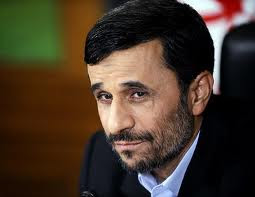An Iranian plan to irrigate its desert cities using water from
the Caspian has provoked concern in Russia and has raised questions about
Iranian compliance with the Caspian community's self-proclaimed emphasis on
equitable usage. The $1.5 billion project was announced by President
Mahmoud Ahmadinejad in the northern city of Sari on 16 April.
It would involve a desalination plant on the Caspian coast, from which the water
would be pumped 140km south to the city of Semnan, which lies east of Tehran.
Around 200 million cubic metres of water would be transferred
through the 500km pipeline each year under the first phase – subsequent phases
will expand the volume of water supplied to inland cities to 500mcm. Officially,
the other Caspian governments have yet to comment – all use desalination plants
of their own, albeit on a smaller scale than Iran's new project. However, some
Russian commentators drew parallels with the Aral Sea in Central Asia, where
decades of Soviet over-irrigation led to an environmental catastrophe and a
drastic shrinking of the size of the sea.
The Caspian's ecosystem is already widely recognised as being
extremely fragile, and a decline in the water volume – made worse by declining
inflows from the Volga river – could have serious effects across the Caspian.
This is especially significant given Tehran's repeated insistence that any
activity (ie, a Trans-Caspian Pipeline) that could damage the Caspian ecosystem
must only be taken with the consent of all five littoral states. If a Caspian
summit does get under way this year (see page 8), the other leaders may have
some tough questions for Ahmadinejad.
For more news and expert analysis about Iran, please see Iran Strategic Focus.
For more news and expert analysis about the Caspian region,
please see Caspian
Focus.
© 2012 Menas Associates












